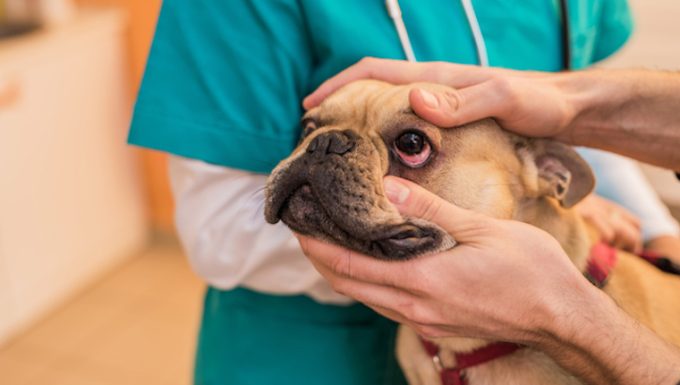Key-Gaskell syndrome in dogs affects the autonomous nervous system (ANS). The condition can affect the heart, respiratory system, and digestive system.
Unfortunately, the condition seems to affect young dogs the most. Additionally, dogs living in certain regions of the United States seem most at risk of it.
Technically, the condition is also known as canine dysautonomia.
If you see the signs of the condition in your dog, then get to a veterinarian for a proper diagnosis and treatment.
Here’s what you should know about the symptoms, causes, and treatments for the condition.
Symptoms of Key-Gaskell Syndrome in Dogs
The condition produces a very wide range of symptoms. Usually, the symptoms appear over three or four days.
For example, some of the most common symptoms include:
- Vomiting
- Dilated pupils
- Avoiding light
- Dry nose
- Dry mouth
- Diarrhea
- Constipation
- Peeing problems
- Lethargy
- Losing weight
- Coughing
- Breathing problems
- Abdominal pain
- Anorexia
Causes of Key-Gaskell Syndrome in Dogs

The cause of the condition is unfortunately unknown. However, dogs under the age of three seem to suffer from it the most.
Additionally, dogs living in Midwestern states in the United Staes seem to be most at risk of developing it.
Treatments for Key-Gaskell Syndrome in Dogs
Firstly, your vet will ask about your dog’s symptoms. Secondly, your vet will ask about your dog’s full medical history. This will include breed-specific problems.
Thirdly, a full physical examination will be carried out. Blood and urine tests will also be taken.
Additionally, your dog’s eye reactions will be tested. X-rays can also help to diagnose the condition.
Unfortunately, there is no current treatment for the condition. Instead, your dog’s symptoms will be targeted. For example, intravenous fluids can help with dehydration. Also, artificial tears can help with eye issues.
Additionally, in some cases medication (including antibiotics) will be prescribed. As always, if your vet prescribes your dog any medicine, make sure to stick to the correct dose and frequency instructions. Also, complete the full course of medicine.
Finally, a humidifier can help your dog breathe easier at home. Your vet can help recommend an appropriate humidifier for you.
Have you ever cared for a dog who suffered from this condition? How did your vet help your dog recover? Let us know in the comments section below.









